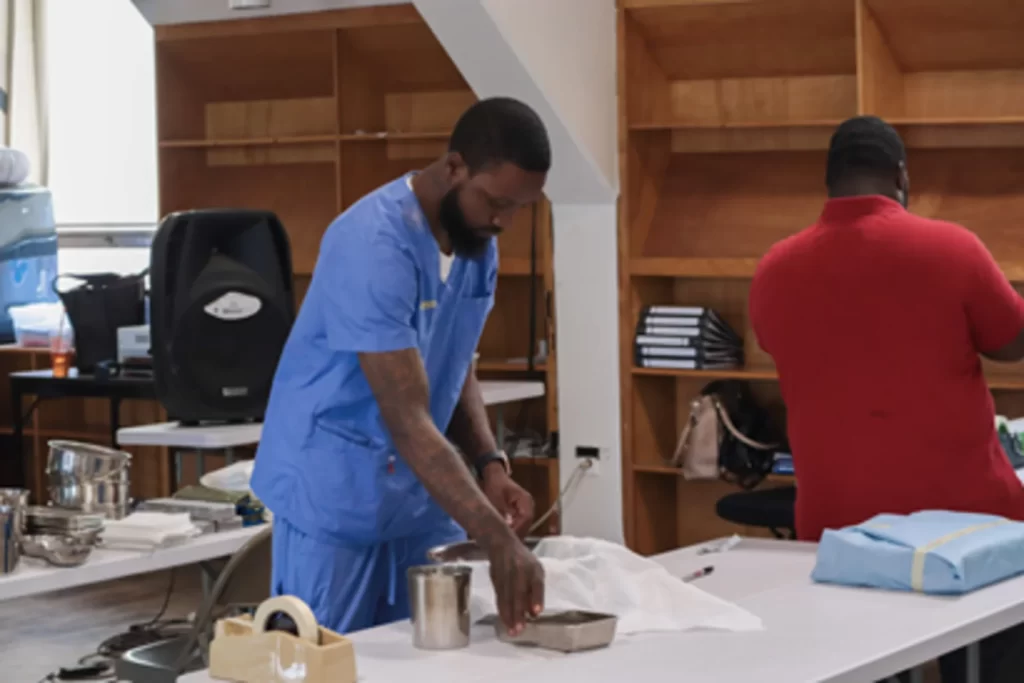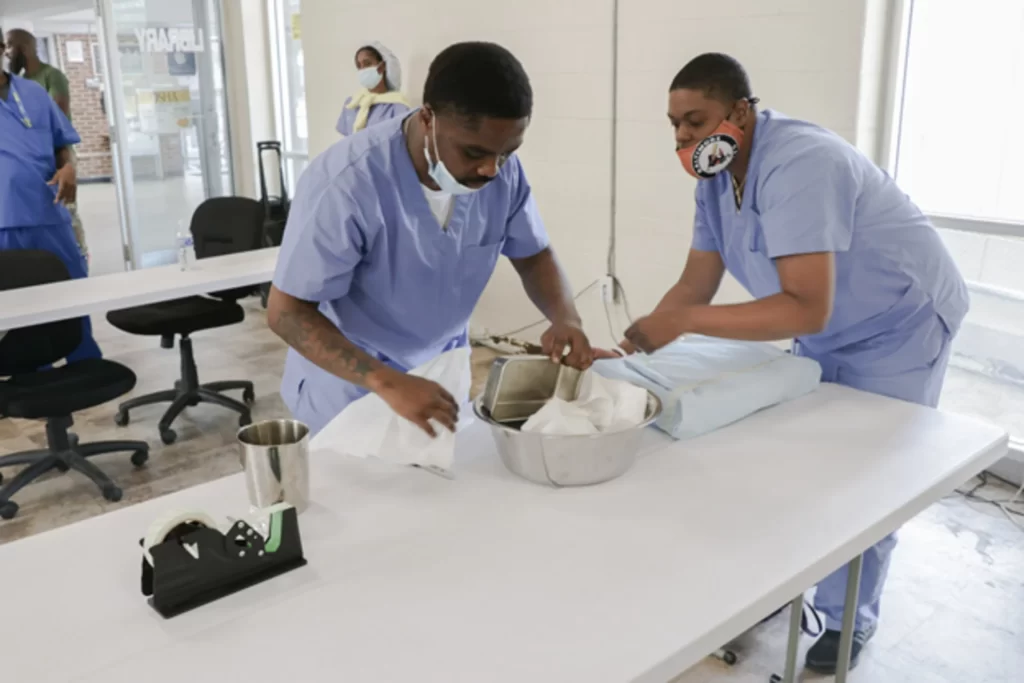A sterile processing technician is responsible for washing, sterilizing, cooling, assembling, packaging, and storing surgical and procedural tools. Sterile processing technicians are essential to medical settings and are accountable for ensuring every surgical instrument is secure for future use. Sterile processing technicians frequently clean and sanitize operating tables, rooms, tables, and equipment to keep staff and patients safe.
The job needs particular factors to accomplish the duties correctly and assure the safety of all involved. In this article, let’s look for the tips to keep in mind that help you excel in the sterile processing field.

Sterile process techs must always be careful when dealing with and cleaning surgical equipment. When cleaning each instrument, technicians must prevent contamination or exposure to blood and bodily fluids. Most sterile processing technicians wear masks, gowns, face shields, and two pairs of gloves to safeguard themselves from bodily fluids and harsh cleansing agents.
Though a habit, the sterile technician position requires patience to work through the details and procedures that make this job so important in healthcare settings. The job needs swiftness and extreme precision. You will spend your complete shift flushing, washing, drying then sterilizing every hinge, screw, tube, and aperture. Then each article must be reassembled adequately for patient safety and surgical cogency.
Carefully going through and following instructions is required at all times as a sterile processor. Every surgical tool has precise instructions for sanitizing, cleaning, and reassembling each piece. Disassembly of the device must also be explicitly done for proper cleaning and sterilization. The procedure needs to be achieved efficiently and effectively.
The sterile processing job is very hands-on and needs an analytical mind. You are responsible for the sterilization, assembly, and disassembly procedure from start to end, ensuring the tools for surgeries, medical processes, and exams are safe to use. You are also accountable for inspecting each device for possible flaws and reporting all defects to staff. After the sterilization and assembly procedure, you deliver instruments to various hospital and clinic departments.
As a sterile tech, you must pay thorough attention to every detail during the sterilization procedure. The safety of staff and patients is in your hands. In addition to the sterilization procedure, you will take inventory to ensure each instrument is accounted for, assembling instrument trays, order supplies, distribute supplies, and carefully check expiration dates to confirm the sterile equipment is safe.
This job sometimes needs analytical reasoning and problem-solving aptitudes that can be learned through sterile processing training. Sterile processing technician certification helps apprentices with developing critical thinking. For example, you might sterilize an operating room during an emergency. In this situation, you must examine the risk factors and make essential decisions on sterilizing equipment and assigning aids. Showcasing your expertise in these upsetting strategies will help you do well in this field.

Frequently, sterile processing technicians function in teams by gaining sterile tech certification. Sterile processing technician certification is necessary for collaboration and communication of working professionals. The technicians often retain contact, provide status accounts, schedule repairs for tools and formulate operating rooms. When comfortable working and conveying with the surgical team, operations steer seamlessly.
This job needs passion, dedication, patience, accuracy, and a meticulous strategy to ensure the safety and well-being of patients and the team. Technical aptitudes aren’t the only ones required to accomplish this job well. To succeed as a sterile processing technician, one only has to be able to operate independently but also require strong interpersonal skills to cooperate and work with colleagues successfully. You will interact with other medical teams daily, which needs excellent communication skills to create relationships and prevent errors caused by miscommunication.
Read More
Get trained with our electrician trade program!Discover Program

Learn hands-on work with our electrician trade program.
